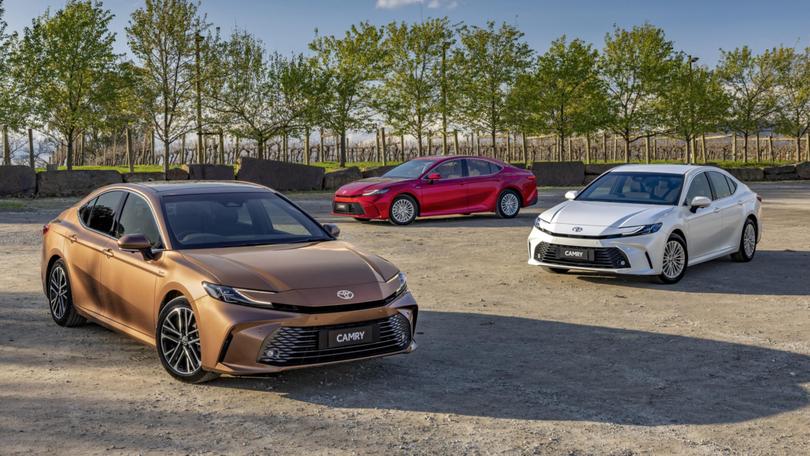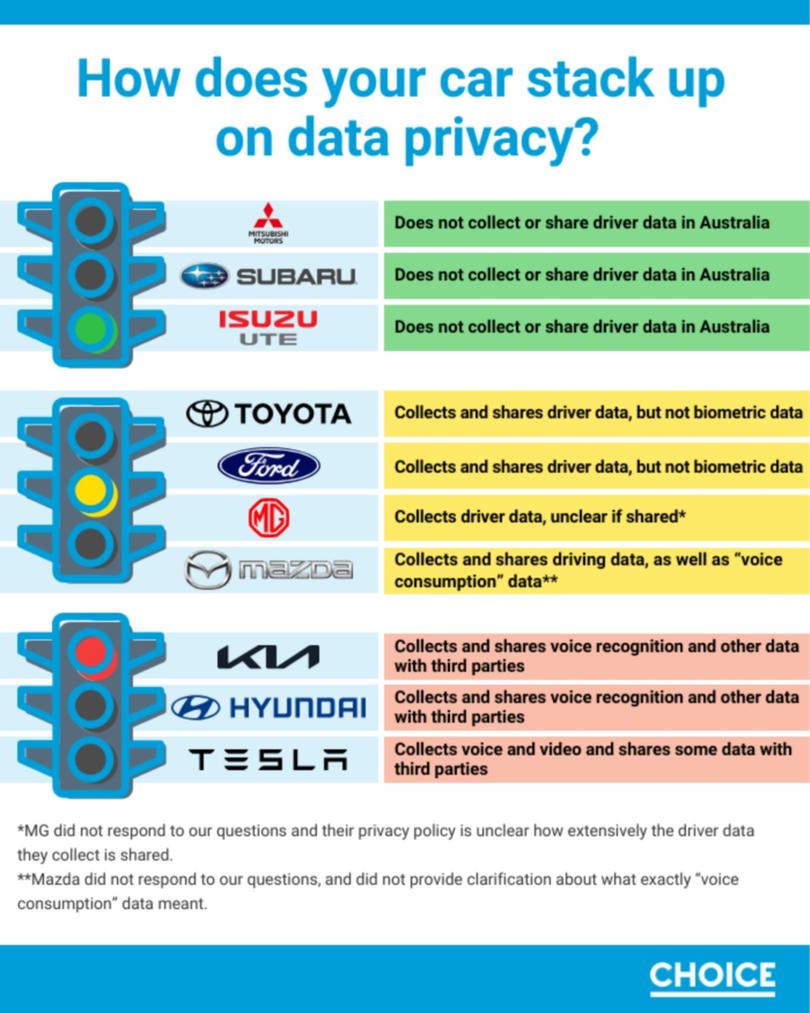Is my car spying on me? Seven in 10 car brands are tracking Australian drivers, these are the worst offenders
Spy cars are not as far-fetched as one may think. Your car may already be monitoring and tracking your driving.

Spy cars are not as far-fetched as one may think. Your car may already be monitoring and tracking your driving.
A new investigation by consumer group CHOICE has revealed seven of the 10 most popular car brands in Australia are tracking drivers, and some are selling customers’ data to third parties.
CHOICE analysed the privacy policies of the 10 big brands — including Toyota, Ford and Tesla — to assess what data they collect, how they use it, and whether customers can opt in or out of data collection practices.
Sign up to The Nightly's newsletters.
Get the first look at the digital newspaper, curated daily stories and breaking headlines delivered to your inbox.
By continuing you agree to our Terms and Privacy Policy.Other brands included in the investigation were Hyundai, Isuzu Ute, Kia, Mazda, MG, Mitsubishi, and Subaru.
CHOICE senior campaigns and policy advisor Rafi Alam said it was “highly concerning” that the investigation found only three car brands did not collect or share driver data in Australia.
He said it was a harsh reminder about our laggard privacy laws and the importance of updating them in the name of protecting consumers from exploitation.
Red light: The worst offenders
Kia, Hyundai and Tesla were the worst offenders when it came to protecting their customers’ privacy, with Elon Musk’s fleet of electric vehicles the worst of all.
While Kia and Hyundai collect and share voice recognition data and other information with third parties, Tesla, Mr Alam said, “takes it one step further”.
The EV brand collects “short video clips and images” captured from the camera inside the vehicle and shares data with third parties.

This is despite Tesla’s privacy policy stating it “never sells or rents your data to third-party companies”, including personal data or driving history.
“We only share information about you, your products or how you use them with your approval,” the Tesla site reads.
Tesla says it periodically reviews anonymous global fleet data, but data from individual vehicles (VIN-associated data) “is only collected for remote diagnostics, for service or during a critical safety event”.
And while vehicles do use cameras — including a dashcam and others to monitor the car while it is parked (in Sentry Mode) — Tesla says footage collected is only “processed and saved in your vehicle or an external device, never on Tesla’s servers”.
The ‘amber light’ offenders
CHOICE’s investigation also found Toyota, Ford, MG and Mazda also collect and sometimes share customer data.
Australia’s two most popular vehicle brands, Toyota and Ford, both collect and share driver data. Toyota collects data such as vehicle location and information on driver’s acceleration, braking and cornering.
MG collects driver data but CHOICE could not clarify whether they shared that data.
Mazda, meanwhile, collects and shares driver data as well as “voice consumption” data — but did not clarify what that voice data is.
“The only three brands that don’t collect or share driver data in Australia are Mitsubishi, Subaru and Isuzu Ute,” Mr Alam said.
“The fact that these three are outnumbered by the seven other brands we looked at is highly concerning,” says Alam.
What does this mean?
Mr Alam said the results of the investigation were a timely reminder that Australia’s privacy laws are “woefully out of date”.
He said the current laws — which were written in the 1980s — are “certainly not fit for purpose in a market where cars are collecting and sharing personal information en masse”.
“Under the current laws, businesses are able to write their own rules through their privacy policies,” he added.
“At a minimum, the federal government should implement a fair-and-reasonable-use test, which would legally require businesses to collect and use data in line with consumer expectations.”
The investigation findings don’t mean you need to chuck a U-ey and floor it to your nearest car dealership to trade your vehicle in. But it does mean you should check your brand’s privacy policy.
CHOICE found drivers are often automatically opted-in to share their data when they buy a car or download a brand’s app. But all of the companies that answered CHOICE’s questions said they offered all customers an opt-out function, too.
